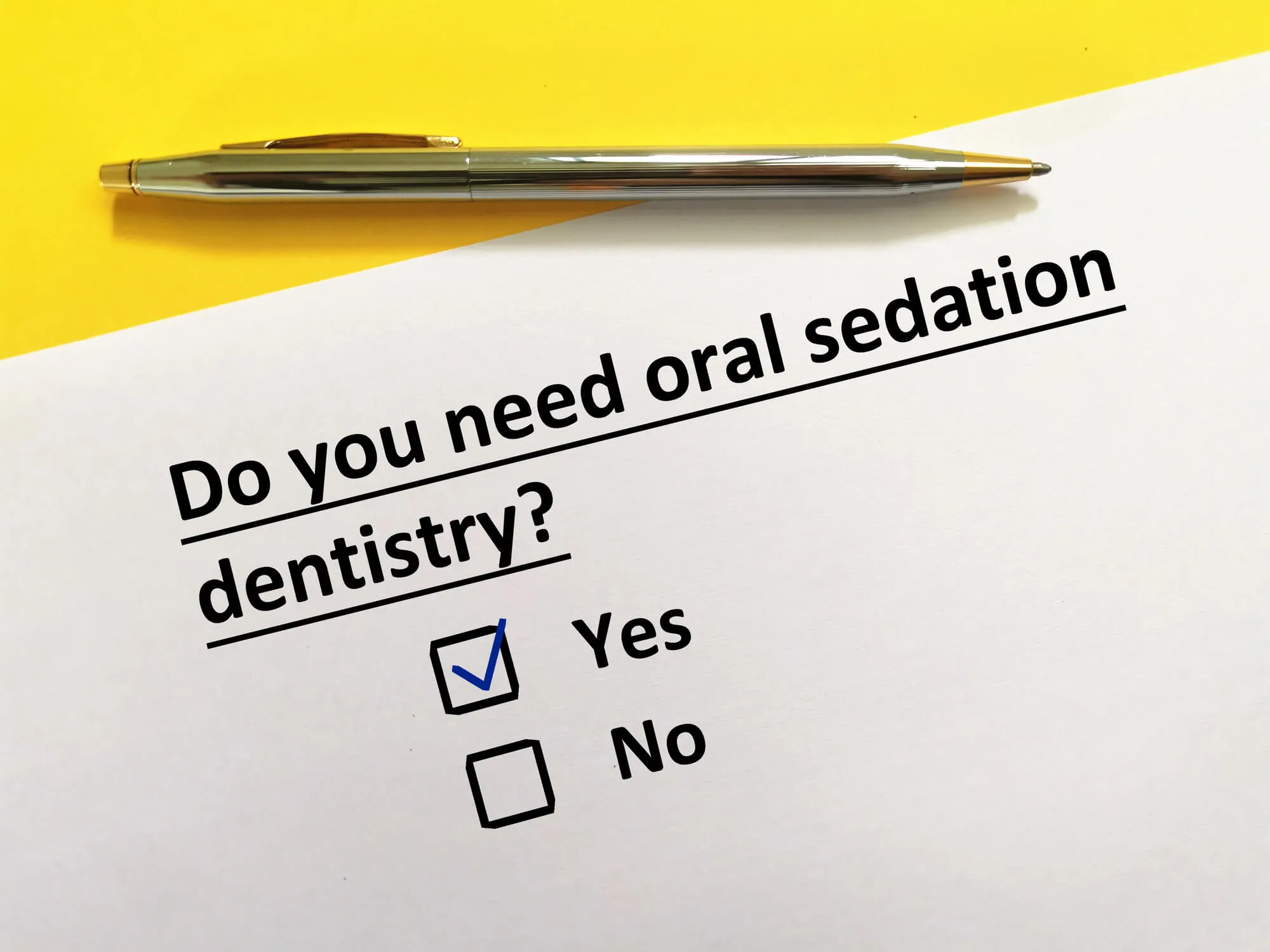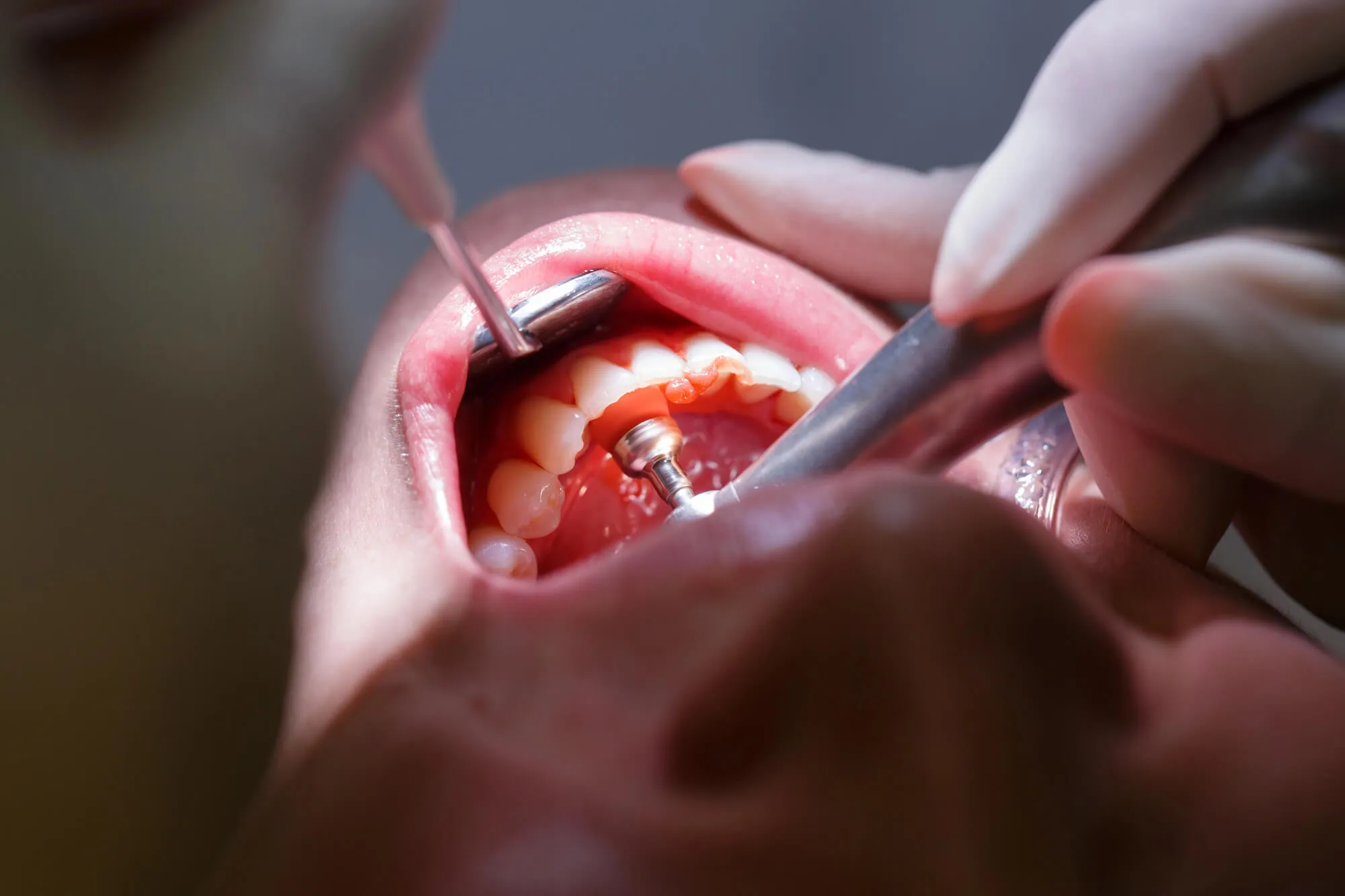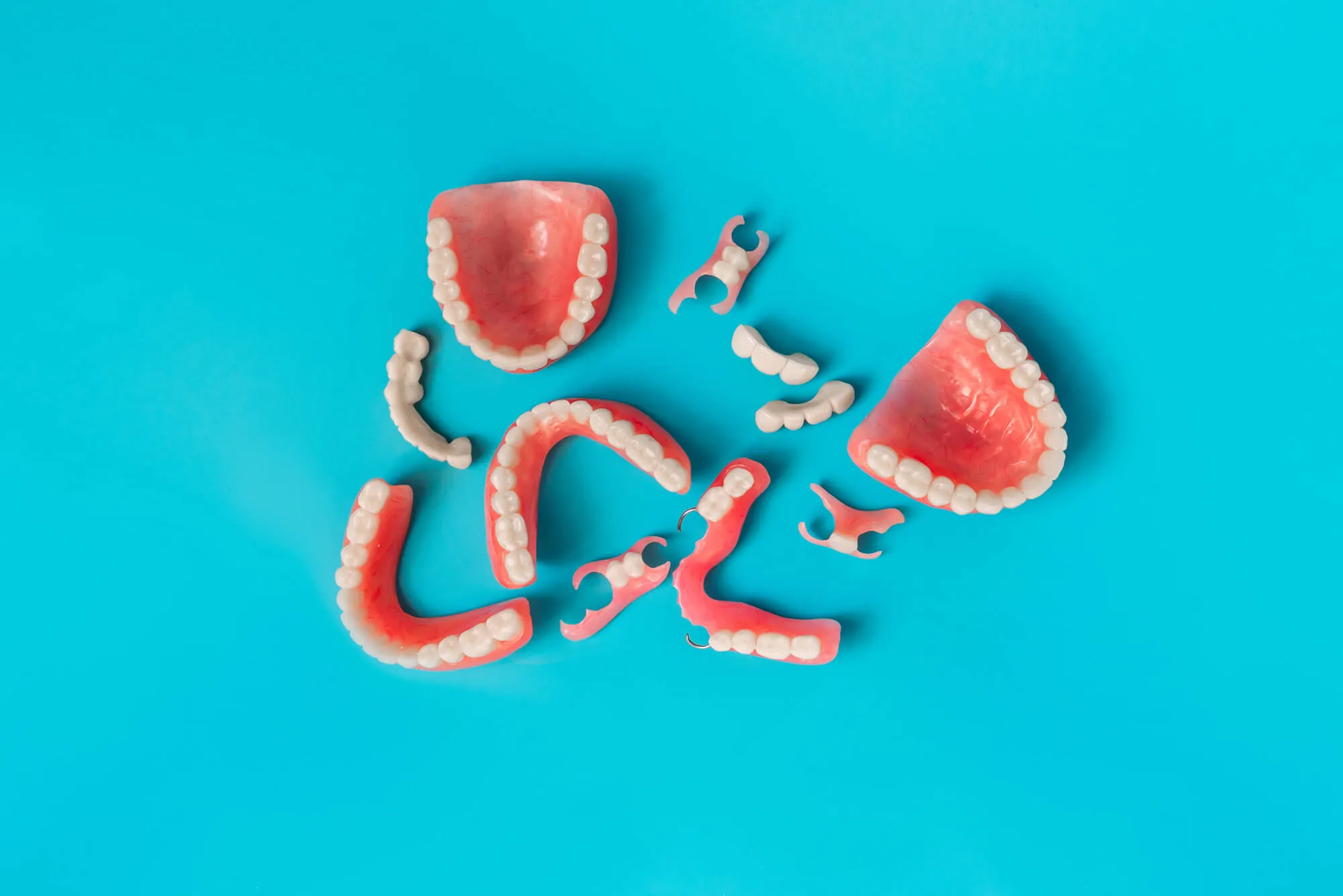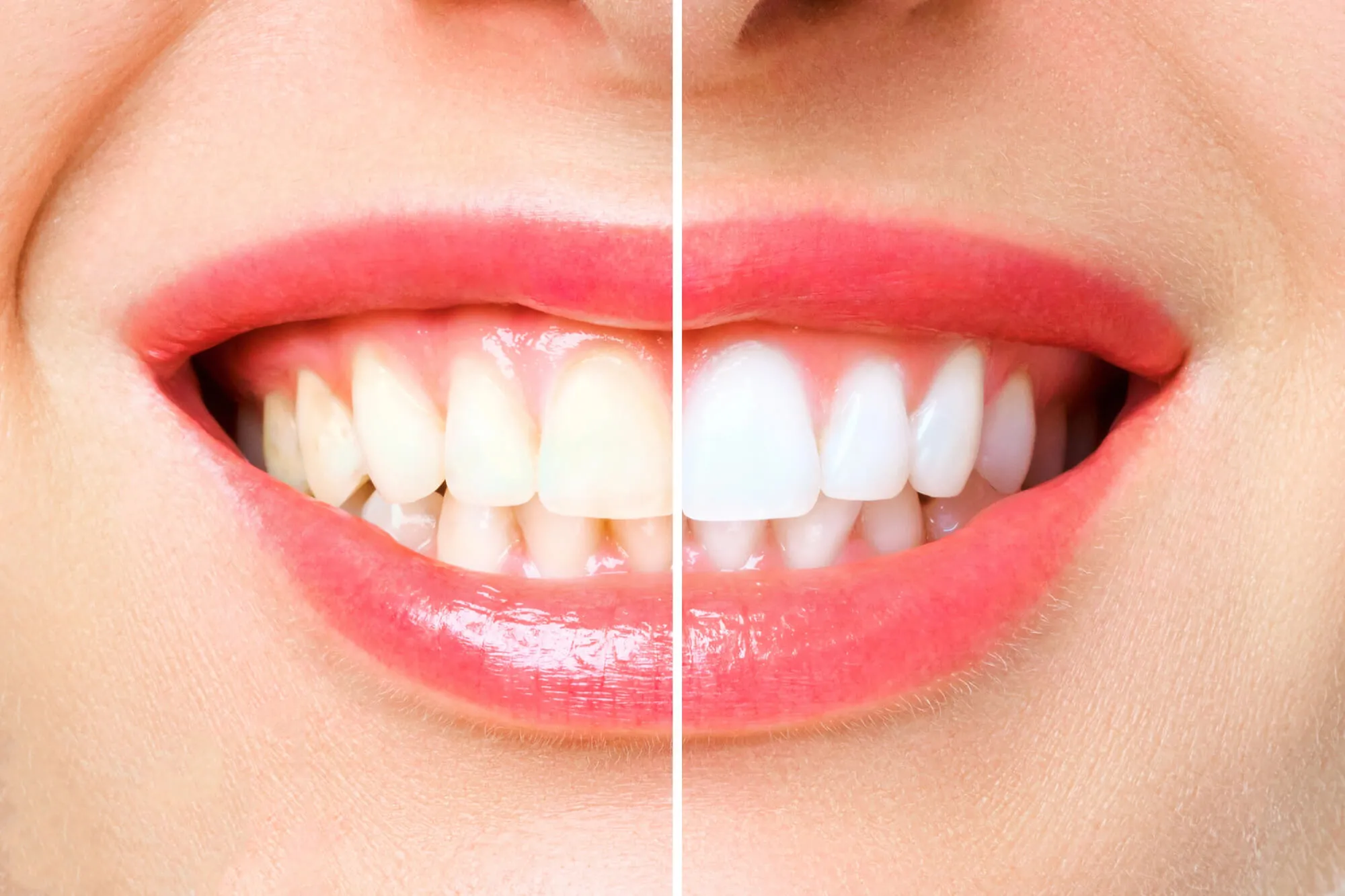Mapping the Milestones of Gum Degradation: Stages of Periodontal Disease Explained

Gum disease is a staggeringly common affliction, affecting millions worldwide, with reports indicating that nearly half of adults over 30 experience some form of it. This seemingly mild annoyance can swiftly progress into a severe threat to one's oral health if not diagnosed and managed by a dentist in Fort Lauderdale.
It begins quietly, often painless, creeping in as gingivitis before advancing to more severe stages, risking tooth loss and impacting overall health. Regular dental check-ups are crucial for early detection and intervention, halting the insidious march of this prevalent disease.

The Progression of Gum Disease: Understanding the Phases of Periodontal Health Decline
The Red Flags of Gingivitis
Initial Inflammation
Gingivitis, the earliest stage of periodontal disease, presents itself as inflammation of the gums. This phase is easily overlooked, as discomfort is minimal and damage reversible.
The gums may appear redder than usual, slightly swollen, and tender to touch. Often caused by plaque buildup at the gumline, this inflammation is the gum's response to the bacteria found in plaque. If plaque isn't regularly removed, it produces toxins that irritate gum tissue, leading to gingivitis.
At this juncture, intervention is key. Simple improvements in daily oral hygiene, such as thorough brushing and flossing, and regular cleanings by your dentist, can usually reverse gingivitis, setting you back on track to oral health.
Bleeding Gums: Not Just a Brushing Blunder
When your gums bleed during brushing or flossing, it’s not an issue to brush off. While it might be tempting to attribute this to brushing too hard, it's often a symptom of gingivitis.
This bleeding is due to the inflammation of the gums caused by plaque accumulation and bacteria irritating the gum line. Ignoring this crimson hint can allow the condition to progress, so it's important to take this symptom seriously.
Consistency in your oral care routine and seeking advice from your dentist are vital steps in addressing this issue. With proper care, you can stop the bleeding and restore your gums to good health.
Bad Breath: A Signal to Heed
Chronic bad breath, or halitosis, is more than just a social inconvenience; it can be a harbinger of gingivitis. The same bacterial plaque that causes gum inflammation can lead to persistent bad breath.
These bacteria release volatile sulfur compounds, which carry a strong odor. If your mouthwash only masks the scent temporarily, it's time to heed this warning. Bad breath accompanied by red, swollen gums is a combo that warrants a dental check-up. Addressing the root cause, which is often gingivitis, with proper dental care, can help you say goodbye to bad breath for good.
Entering the Zone of Periodontitis
Early Periodontitis: A Call to Action
When gingivitis is left unchecked, it can escalate to early periodontitis, a stage where the damage starts to become more stubborn. This stage marks a transition from reversible gum inflammation to the potential for irreversible tissue damage and bone loss.
Gums may start to recede, forming pockets where food particles and more bacteria can accumulate, leading to further plaque buildup. This is a critical moment to intervene with professional dental treatment to prevent further degradation.
A dentist can provide deep cleaning procedures, such as scaling and root planing, and may recommend changes to your oral hygiene routine to combat early periodontitis effectively.
Moderate Periodontitis: The Hidden Havoc
Moderate periodontitis is devious, often causing significant damage without major discomfort. At this stage, the supporting fibers and bone that hold your teeth in place have suffered injury. Deeper gum pockets form, which may fill with pus, and gum recession becomes more apparent.
This damage isn't just cosmetic; it's a serious health issue that can affect chewing and speaking. Dental intervention becomes more intensive at this stage, often requiring a combination of periodontal therapy and improved home care, alongside potential lifestyle changes to mitigate risk factors. Your dentist is an invaluable ally in halting the havoc of moderate periodontitis.

Severe Periodontitis: The Tipping Point
Severe periodontitis is a critical phase where the connective tissue that anchors teeth is in jeopardy, and substantial bone loss can occur. Teeth may loosen, shifting out of their proper position, which can alter your bite and the way your teeth fit together.
This stage poses an immediate risk to your oral health, with the potential for tooth loss and significant impact on overall well-being.
Aggressive treatment by a periodontist may include surgical interventions to attempt to regenerate lost tissue and bone. At this tipping point, immediate and comprehensive dental care is essential.
Advanced Periodontal Disease: The Consequences
Advanced Destruction: A Dire Warning
When periodontal disease reaches an advanced stage, it sends a dire warning that your oral health is in a critical state. This phase is characterized by severe gum recession, deepening pockets, and heavy loss of bone and tissue structure. The teeth may appear elongated, and eating may become painful.
Advanced periodontal disease can require complex treatments, including grafts, flaps, and even tooth extractions. It's a condition that not only devastates your oral health but can have ripple effects on your systemic health, potentially worsening chronic conditions like diabetes and heart disease.
Tooth Mobility: When the Roots Suffer
In the advanced stages of periodontal disease, tooth mobility becomes a profound concern. This is indicative of the disease attacking the very foundations of your teeth—the bones and fibers that hold your teeth in place.
As these structures deteriorate, your teeth lose their stability, leading to increased movement and, eventually, the risk of tooth loss. The impact of tooth mobility extends beyond oral health, potentially affecting nutrition and self-esteem. It's not just about teeth that may move or shift; it's about a significant decline in the quality of life.
At this stage, intervention is critical and may include splinting teeth together, bite adjustment, or more advanced surgical procedures to salvage the teeth and restore functionality.
Comprehensive treatment plans from specialized periodontists become a necessity to manage such severe cases, highlighting the importance of early detection and treatment of periodontal disease.

Do You Need to See a Dentist in Fort Lauderdale?
Understanding the progression of gum disease underscores the importance of early intervention, expert laser treatment, and consistent dental care. Recognizing the signs early on can make a significant difference in the outcome, and regular visits to the dentist are critical in managing and preventing the escalation of this common yet serious condition.
At 1500 Dental, we're committed to helping you maintain optimal gum health. If you have concerns about your gums or wish to learn more about protecting your oral health, reach out to us. Book an appointment today and ensure that your smile remains vibrant and healthy for years to come.













